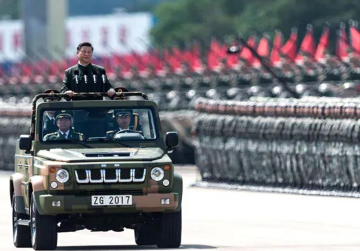Japanese Prime Minister Noda Yoshihiko is facing a crucial Diet session where his survival ability will be severely tested in the coming weeks. As part of his strategy, he had reshuffled his cabinet wherein he removed Ichikawa Yasuo, the controversial Defence Minister who has been replaced by Tanaka Naoki, a close relative of a prominent former LDP Prime Minister Tanaka Kakuei. Noda also appointed party heavy weight Okada Katsuya as the Deputy Prime Minister. This move to induct Okada was mainly intended to use him as an interlocutor to negotiate with the Liberal Democratic Party and the New Komeito leaders on possible legislative compromises. It is difficult at this stage to predict whether this would really produce any political dividends for Mr Noda. It is very much doubted that given the no- holds barred political situation, Okada could really play the role of a bridge.
The Prime Minister, in his Policy Speech delivered on 24 January, set the tone for pursuing a policy of compromise with the opposition parties. He made a fervent appeal to them to rise above partisan differences and support the government in collectively addressing the formidable challenges faced by the nation through discussions based on a relationship of trust. The issues on Japan’s political agenda, according to Mr. Noda, do not involve serious conflict over ideologies or interests as in some other democratic countries in the world. He cited how the ruling coalition and the opposition could hammer out an agreement on the third supplementary budget in the previous Diet session .He believed that the opposition parties could as well adopt a similar approach in the current session to discuss the issues facing Japan, come up with specific proposals and implement them.
Mr Noda has laid great stress on the recovery from the Great East Japan Earthquake, fight against the nuclear reactor accident and revitalization of the Japanese economy. Ten months have passed since the March 2011 catastrophe and still the recovery process is not complete despite numerous measures implemented by the government. It is still a long way before the complete rehabilitation of the affected people is achieved. A new Reconstruction Agency created in the last Diet session will come into force during early February to carry forward reconstruction activities that would include the rehabilitation of the environment, a condition essential for the evacuees to be able to return to their home towns. Decontamination and the revival of essential public services like hospitals and schools should be hastened.
Similarly, Mr. Noda also underlined the importance of having to undertake measures to rebuild the national economy which should regain its energy by removing the obstacles that impeded domestic investment, ensuring the competitiveness of companies and creating new opportunities for employment. One of the main items to be considered by the current Diet session is the national budget for the year 2012-13 which will be essentially geared to achieve the above objectives. The Government is also expected to initiate a new growth strategy by the middle of the year that will be implemented by public and private sector cooperation. Mr Noda has also promised to implement the newly created basic policy and action plan for the revamping of agriculture, food, forestry and fishing industries. Equally emphatic is his keenness to tap the full potential of ocean and space resources. He has recognised that the revival of the economy is closely tied to an effective and holistic energy policy which should take into consideration various aspects such as its impact on the economy, environmental conservation and security. Stating that the country’s energy policy will be reviewed from zero, a new energy policy will be initiated by the summer of 2012 and it will create a framework for the electric power system that will support the new energy composition, and the future measures concerning global warming. Regarding the role of nuclear energy and its future role, the emphasis will be on establishing an administrative body that would ensure nuclear safety and restore people’s confidence
Another important issue that Mr. Noda has sought to address is the need to reform the prevailing social security system. The population of Japan is ageing at a rapid pace and it is already being reflected in the shrinking work force of the country. The baby boomers who used to be on the "support side" for years are themselves in dire need of support from others. Until recently, a single elderly man enjoyed the support of many workers. But now there are only two or three persons supporting an elderly person. But soon there is a danger of this ratio reaching one to one. The social security costs are bound to skyrocket in the coming years. In order to meet the swelling social security costs, Mr Noda contemplates raising the consumption tax from the current 5 per cent to 8 per cent in 2014 and to 10 per cent in 2015. Considering the present numerical strength of the DPJ coalition in the Diet, it is impossible to win the parliamentary endorsement for the tax hike unless the opposition LDP-New Komeito combination is prepared to support the government. This basic understanding of the hard legislative realities has underlined Mr Noda’s appeal to the opposition for cooperation which is crucial for enacting important bills since it controls the Upper House. Judging by its present inflexible posture, the opposition seems bent on exploiting the weaknesses of the Government. Far from showing any inclination to cooperate, the opposition wants to see that the Lower House is dissolved at the end of the current session. As a first step, it may move a no-confidence motion against the Government.
(Prof. K.V. Kesavan is a Distinguished Fellow at Observer Research Foundation)
The views expressed above belong to the author(s). ORF research and analyses now available on Telegram! Click here to access our curated content — blogs, longforms and interviews.




 PREV
PREV

